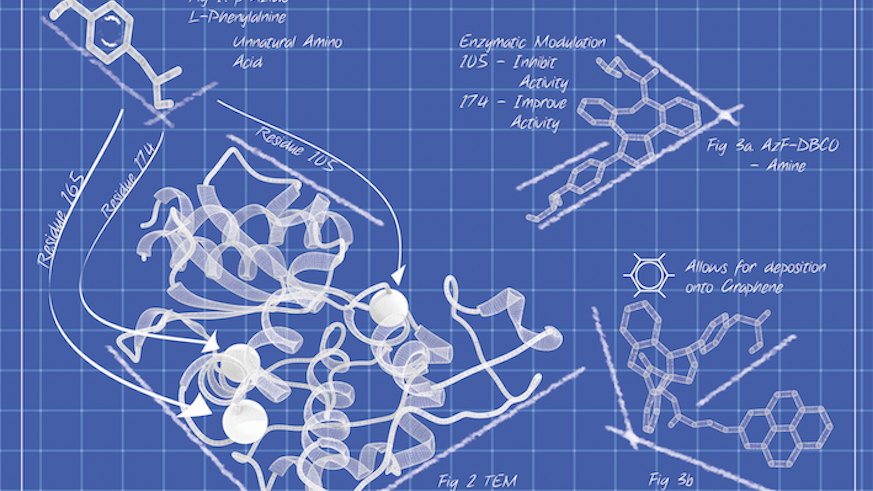Harnessing nature's 'nano-machines'
6 Chwefror 2017

Proteins are nature’s own nano-machines, performing most of the main functions for life. Nature routinely adds new chemical species to proteins in order to add or control functionality.
Scientists at Cardiff University School of Biosciences and School of Physics have taken this process one step further, finding uses for it in both synthetic biology and nanotechnology.
By hijacking the classical genetic code by which DNA is converted through to proteins, the research team has been able to add new and useful chemical entities to proteins. This has enabled the attachment of antibiotic resistance proteins to graphene for future sensing and drug screening applications to changing the output of GFP, a key cell imaging protein.
Dr Dafydd Jones, leader of the research group, explained the potential of this research
“The ability to add new chemical entities to proteins not normally found in nature can dramatically expand the function of proteins into new areas, including material science and nanotechnology.
This research is an excellent example of how synthetic biology can be used to open up new avenues of research for biomolecules. One exciting area is the ability to look at single or few proteins which will change our fundamental understanding of proteins and enable new biosensor systems."
Dr Jones continued,
"Controlling protein activity is also central to many biological systems. We have shown that our approach can both switch on and turn off protein activity through the use of a simple chemical reaction, or even by using light.”
Dr Jones’ research in this area was partly funded by the Cardiff Synthetic Biology Initiative and was published in the Royal Society of Chemistry’s flagship journal, Chemical Science.